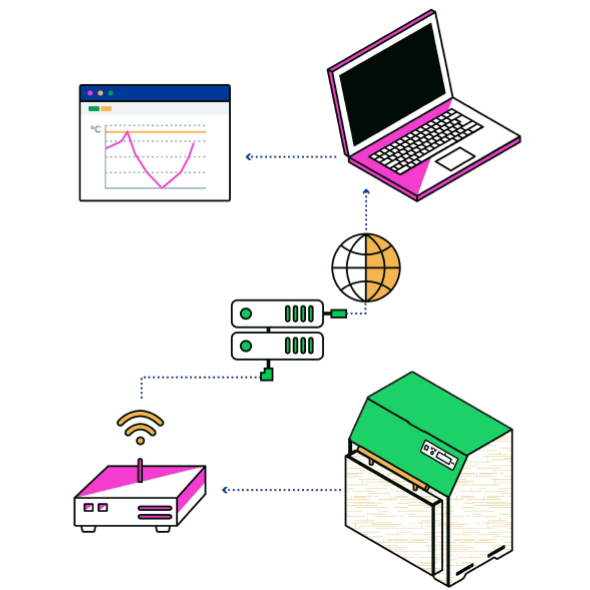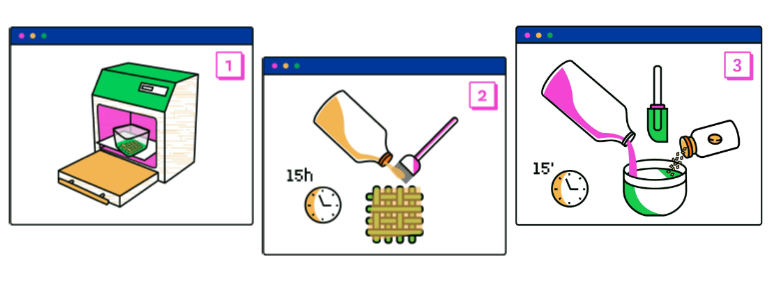
Submitted by S.A. Norwood on Tue, 11/08/2020 - 11:04
The Mycotextile project is a transdisciplinary exercise that seeks to develop an open source biomaterial. The project was developed in response to the fast fashion movement, encouraged by the textile industry, which generates serious socioenvironmental consequences. We set out to create a mycelium-based textile from native wood-decomposer fungi collected from the Isla Grande de Tierra del Fuego in the Chilean Patagonia. Because the project was based around open source technology, it was fundamental to develop scientific instruments that allowed us to replicate, in the best possible way, the biomaterial recipe. Hence, the project aimed to develop and fabricate an open source incubator prototype, that allowed us to control and monitor humidity and temperature.
Mycotextile was developed by an interdisciplinary team from the Biofabrication Laboratory UC (www.biofab.cl). The overall goal of the project was to grow different types of wood decomposing fungi over a vegetable fibre matrix, such as a cotton, hemp or jute. Then a mixture of soy protein, glycerine and other ingredients was developed as coating material, in order to prevent the material from losing its moisture and to preserve the textile's mechanical and elastic properties. In addition, the scientific open hardware team fabricated an incubator that allowed control of the mycelium growth temperature, in a range between 20 and 30 degrees celsius, with 25°C being the optimal growth temperature for the samples. The incubator uses peltier thermoelectric cells and computer disipators to cool and heat the interior air. Additionally, temperature and humidity data is sent by an interior sensor to a webapp to visualize data in graphics, allowing the incorporation of various incubators and experiments in a network. This development was possible thanks to the participation in the REGOSH Residency [http://regosh.libres.cc/] (Towards a network of free technologies for education, investigation and community science in Latin America and the Caribbean) and the participation in the OpenPlant Biomaker Challenge 2019.
The project was presented to the community as a practical guide. This guide is an effort to democratize knowledge generation, taking a step towards opening up science outside the academic sphere. It is an exercise in the discipline of design in the Latin American contex, by which we wish to facilitate access to our processes and results in a more attractive and didactic way. With this, we hope to reach more people who are interested in the fungi kingdom and its nexus with open scientific hardware. The guide is split into two sections. The first section presents the context and scope of the investigation. The second section acts as a more practical guide, in which you will find the steps to replicate the project results. This includes all of the documentation needed for mycotextile elaboration, incubator fabrication and the data monitoring appweb. The guide is presented in Spanish, but includes a series of detailed illustrations in a step-by-step guide.
We hope this guide motivates people to explore the world of biomaterials and open hardware, so that this knowledge is replicated, modified and improved with time and through collaborative results from different territories.
Some documentation on the first prototype of the incubator project are also availble in English on the Biomaker team's Hackster page.
For more information contact: infobiofab@gmail.com, depablocata@gmail.com, sebastian.rdz@ug.uchile.cl
Authored by: Catalina de Pablo
Images by: Danae Catalán Latournerie


